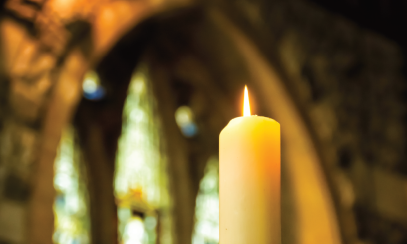I hear there is a new Anglican rite, along with married priests. How does this work?
Dear Father Joe: I hear there is a new Anglican rite, along with married priests. How does this work?
You’ve got it right: there is a new Anglican rite in our Church that brings some married priests into our mix. How this happens is a testament to our belief in the power and beauty of truth – and it’s great stuff.
We start in November 2009, when Pope Benedict gave us a document called Anglicanorum Coetibus. This document explains how and why Pope Benedict established the Anglican rite and is the one that made it possible. In this answer, we will focus on the why much more than the how, as learning the “why” will teach us a lot about the Church.
So, we’ll skim Anglicanorum Coetibus right now, but I invite you to look it up and read it for yourself. It’s not too long, and my summary of it will miss a lot, simply because of space and time limitations (mostly in my head). Side note: In this document, Pope Benedict quotes Lumen Gentium a lot, which points us toward the importance of reading that document, as well.
So, with that, let’s get right to it!
In Anglicanorum Coetibus, (called an apostolic constitution), Pope Benedict begins by building on our teaching that Christian unity is a part of Jesus’ goal for us. When we look at the life and prayer of Jesus during his earthly life, we see his desire that his followers show the world our love and commitment for Christ through our unity. We are called to work together within the structure that Christ gave us through the Holy Spirit. We know the infighting among different Christian groups is a source of scandal to the world and a point of sorrow for our Savior.
The pope points out that we Catholics believe that we are the Church God intended. Our structure, governed by the pope and the bishops in communion with him is, in fact, not our structure nor our idea, but the intent of the Holy Spirit at work in the world.
Some people get very upset at this: They consider this teaching a form of arrogance or spiritual elitism. I will readily admit that there are those in the Church who take this belief to dark places, but I also want to point out that it doesn’t have to take us there. Of course, we believe we are right – it would be illogical to say we believed in something wrong. What kind of Church would we be if we didn’t believe we were following the truth? What kind of Catholics would we be if we didn’t believe that the Catholic Church is what Jesus intended while he was on earth? We aren’t saying that, as a Church, all our actions have been perfect and that everyone but us is going to hell. We are stating our conviction that the Church is Jesus’ gift to us as the way he intended for people to know him.
After Pope Benedict points to our conviction that the Church is the best way to know, love and serve the truth, he also acknowledges that there are “many elements of sanctification of truth outside of her visible confines.”
That said, truth is so powerful that we find ourselves longing for it.
A little bit is never enough for us – once we have even a bit of the truth, our souls hunger for more. The elements of holiness and truth in institutions outside of the Church are the very elements that pull people toward it.
In Anglicanorum Coetibus, we read this line: “The Holy Spirit has moved groups of Anglicans to petition repeatedly and insistently to be received into full Catholic communion.” This is our cue that Pope Benedict saw the Holy Spirit at work in the desire of some of our Anglican brothers and sisters to become Catholic. He, as pope, felt compelled to respond to that desire and work to make it possible.
Once this was established, the Holy Father next sought what the law permitted, and acted accordingly. With that, we had the Church open the doors to this new (for us) reality of some of our priests being married.
Does this mean that the Church is changing its teaching on married priests? In my opinion, no. However, we need to remember the Church’s teaching on priestly celibacy is a matter of practice, not of dogma.
What this means is that God can and will continue to surprise us and meet our needs in unexpected ways – and, for that, we always should give thanks!
Enjoy another day in God’s presence.
If you’d like to submit a question for Father Joe to consider in a future column, please send it to: joeinblack@priest.com. Father Joe is unable to personally answer questions.



